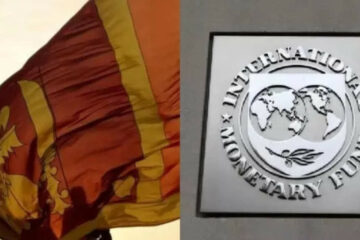[ad_1]
“At a meeting with Indian Finance Minister Nirmala Sitharaman, both sides agreed to make further progress on the UK-India Free Trade Agreement and deepen bilateral economic and financial ties,” the Treasury department said in a statement.
“They agreed to make swift progress on setting up the next UK-India Economic and Financial Dialogue,” it said.
Hunt, on his first international visit as UK Chancellor, also met with business leaders in Bengaluru and visited the offices of tech multinational Wipro which employs over 4,000 people in the UK.
“Meeting fellow Finance Ministers face to face is an excellent opportunity to make real progress on the key global economic issues of our time,” said Hunt.
“I first visited India 38 years ago, and it’s been fascinating to see how much the country has changed in this time – there are positive lessons to be learnt from their successful rapid development.
“It’s been great to hear from Indian technology business leaders here in Bengaluru how they are pushing the country’s economy forward, and I look forward to further collaboration between India and the UK as we continue to trade and create jobs – delivering on the government’s plan to grow the economy,” he said. The Chancellor, alongside Bank of England Governor Andrew Bailey, attended a meeting of G7 Finance Ministers and Central Bank Governors on Thursday. They were joined virtually by Ukrainian Finance Minister Serhiy Marchenko.
“Their statement sent a strong message of condemnation for Russia’s war of aggression against Ukraine, announced an increase of financial support for the Ukrainian government to a total of USD 39 billion in 2023 and committed to continue supporting vulnerable countries hardest hit by the economic impact of the war,” the Treasury said.
On Friday, the UK announced a fresh wave of internationally coordinated sanctions and trade measures, to “further restrict Russia’s capability to wage war in Ukraine both now and in the future”.
At the first G20 Finance Ministers and Central Bank Governors meeting under the Indian Presidency, Hunt condemned “Russia’s brutal acts” in the strongest terms, emphasising that securing peace was the most important action for global growth.
According to the UK government, the senior Cabinet minister also underscored the need for bilateral official creditors and private sector to urgently help address low and middle-income country debt vulnerabilities in developing countries.
The minister emphasised the importance of multilateral development banks boosting lending from their existing balance sheets and called on the G20 to fulfil its pledge to channel USD 100 billion of IMF Special Drawing Rights in support of developing countries.
“The Indian Presidency issued a Chair’s statement at the end of the meeting which highlighted, among other things, the continued need to fight inflation, and the importance of supply-side policies, especially those that increase labour supply, boost growth and alleviate price pressures.
“There was also G20 consensus, including China, on the need for swift resolution of existing debt restructuring cases and to work on the impacts of food and energy insecurity on the global economy,” the Treasury said.
While in Bengaluru, the UK Chancellor is also said to have had “productive bilateral meetings” with US Treasury Secretary Janet Yellen, Federal Reserve Chairman Jerome Powell, French Minister of Economy and Finance Bruno Le Maire and Kristalina Georgieva, Managing Director of the International Monetary Fund (IMF). He also met with Australian Treasurer Jim Chalmers.
While speaking at the meetings, the Chancellor is said to have set out the UK government’s intention to protect the most vulnerable from cost-of-living pressures, whilst maintaining fiscal sustainability with debt falling and not adding to inflationary pressure.
He added that the upcoming Spring Budget of the Rishi Sunak-led government on March 15 will “drive economic growth, focusing on skills, business and infrastructure investment and research and innovation, as well as reviewing regulations of the UK’s key growth industries”.
[ad_2]


